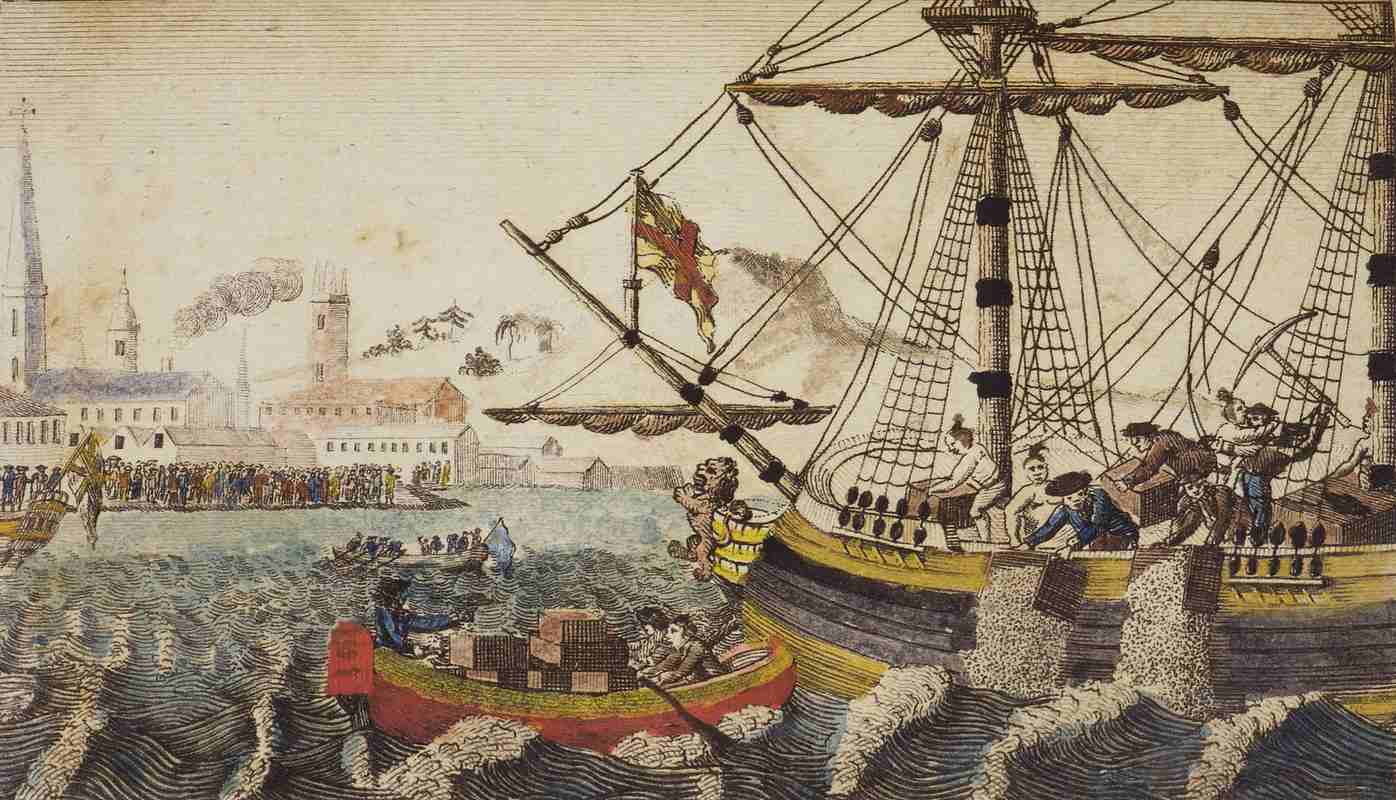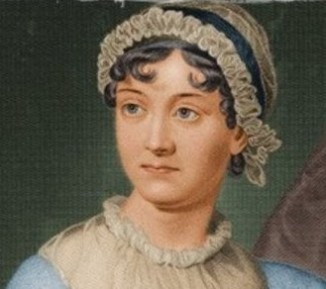251 years ago today, members of the Sons of Liberty disguised as Mohawk Indians stole aboard trade ships in Boston harbor and began throwing tea shipments into the water in protest of tea taxes on the Colony. The precise details were the passage of the Tea Act in British parliament, which the colonists believed violated their rights as Englishmen; that it provided for taxation without representation. It was the touchstone of the American Revolution, and remains a critical lesson to all nations of the world. READ more and some historical parallels… (1773)
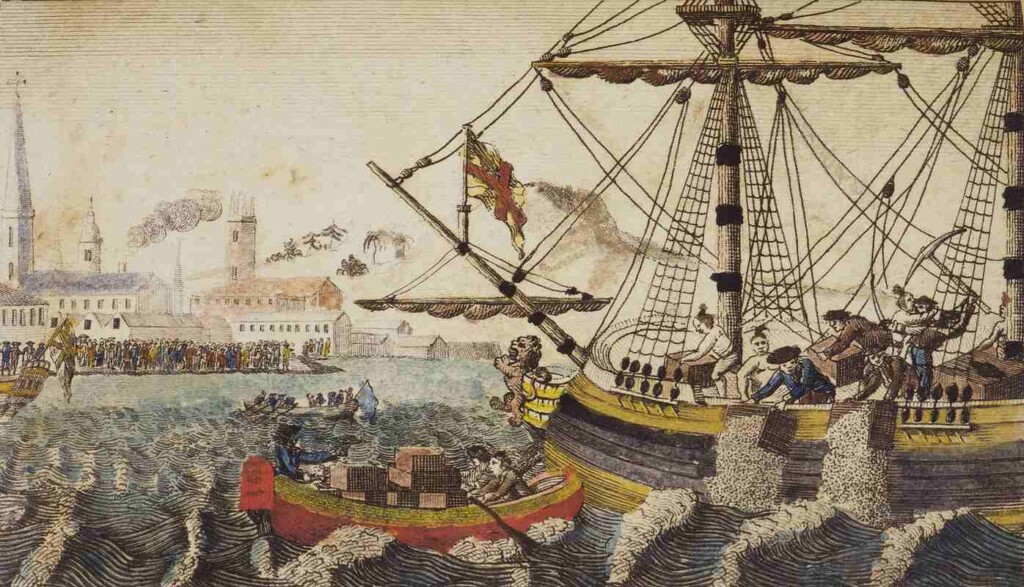
The British saw the party as an act of treason, and responded harshly with violence. This was the first lesson for the colonists and their descendants today—that rights must be secured to oneself, by force if necessary, since laws have no power or real authority, and remain mere ideas and pieces of paper unless the overruling government enforces them.
The second lesson is that if overreaching government exists, large private industries will become entangled in their affairs to the detriment of their business. Requiring to pay an import duty to bring tea into England, the British East India Company used to get a refund when the tea was re-exported. This expired in 1772, leaving the company in dire straights. The Tea Act restored this refund and granted a monopoly to the East India Company for importing tea into America, with the import cost covered by the Townshend Act tax which the American colonists so despised.
The final lesson one might glean from this event is the willingness of our forebearers to attain self-government, for the tax in today’s dollars would be a mere £1.36. Over this small sum, and filled with a kind of righteous indignation, the colonists revolted; a startling thing to imagine when tax rates today are thousands of times higher, and import tariffs like those of the Tea Act are placed on dozens of goods at much higher rates than that collected by the EIC.
MORE Good News on this Date:
- British MPs voted overwhelmingly to abolish the death penalty (1969)
- Jean-Bertrand Aristide was elected president in Haiti’s first democratic election (1990)
- The CAN-SPAM Act of 2003 was signed into U.S. law, establishing the first national standards for sending commercial e-mail and requiring enforcement by the Federal Trade Commission (2003)
- Ron Paul, a nearly unknown U.S. presidential candidate, raised a record amount of money online in a single day—over six million dollars in 24 hours—from mostly small donors, introducing a new way for Americans to fund grassroots candidates online, without the need for major party support (2007)
- Today is Kazakhstan’s Independence Day, and South Africa’s Day of Reconciliation
107 years ago today, Sir Arthur C. Clarke was born in Somerset. Known as one of the “big three” of science fiction along with Robert Heinlein, and Isaac Asimov. Clarke co-wrote 2001: A Space Odyessy, as well as Childhood’s End, and The Songs of Distant Earth. After a career in science and academia, he moved to Sri Lanka to pursue a passion for scuba diving. On a dive, he discovered the ancient original temple complex of Trincomalee, for which he was knighted in addition to receiving Sri Lanka’s highest civilian honor, Sri Lankabhimanya.
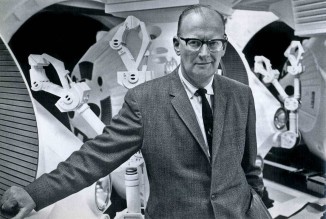
A farm boy, Clarke grew up stargazing and fossil hunting, before pursuing the sciences, joining the RAF for WWII, and attaining a first-class degree in mathematics and physics from King’s College London before going on to edit the journal Physics Abstracts.
Clarke also wrote a number of nonfiction books describing the technical details and societal implications of rocketry and space flight. The most notable of these may be Interplanetary Flight: An Introduction to Astronautics, The Exploration of Space. In recognition of these contributions, the geostationary orbit 36,000 kilometers (22,000 mi) above the equator is officially recognized by the International Astronomical Union as the Clarke Orbit. The Exploration of Space was what convinced German-American NASA chief Wernher von Braun to tell President Kennedy it was possible to visit the Moon.
As a fiction writer, Clarke authored 21 books, including 2001: A Space Odyessy, which was adapted into a film by Stanley Kubrick. He wrote three sequels to 2001 but also many standalone novels, which in total won him 3 Nebula Awards, 3 Hugo Awards, a Nobel Prize nomination, several honorary positions in various orders of merit and science, and an Academy Award. (1917)
254 years ago today, Ludwig van Beethoven, one of the most admired composers in the history of Western music, was born in Bonn, Germany. Hundreds of the pianist’s sonatas, overtures, chamber music, and symphonies rank amongst the most performed of any musician, classical or otherwise.
Even while suffering increasingly from deafness in 1812 and becoming almost completely deaf by 1814, he continued to radically innovate musical form and expression until his death in 1827. Particularly his final, Ninth Symphony, with its powerful choral adaption of the poem “Ode to Joy”, was the first major example of a symphony that used voices, and a supreme achievement in the history of music.
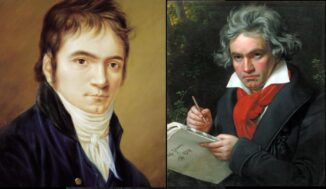
Its exultant premiere was the composer’s first onstage appearance in 12 years, after giving up performing; the hall was packed with an eager audience and many musicians. Upon its completion, the contralto Caroline Unger walked over and turned Beethoven around to see the audience’s wild cheers during five standing ovations, which he could not hear. WATCH a short bio—with clips of music familiar to everyone… (1770)
A translated excerpt from An die Freude (Ode To Joy) by Friedrich Schiller:
Gladly, as his suns fly
Through the Heavens’ glorious plan
Run, brothers, your race
Joyful, as a hero to victory.
Be embraced, you millions! This kiss for all the world!
On this day in 1775, English novelist Jane Austen was born—with a talent for writing stories, plays, and poetry. Beginning when she was just 12 years old, the aristocrat wrote such classics as Pride and Prejudice, Sense and Sensibility, and Emma.
The books portrayed an air of English countryside romance, but also a biting social critique and irony. You might have seen the lush Academy Award-winning films based on those books. Although she never married, Austen did become engaged – for one night. The 27-year-old author accepted the proposal of an awkward, socially inept man 5 years her junior, and changed her mind the next day… WATCH a great little biography below that illustrates the lessons she wished to teach others through her novels:
And, 36 years ago today, Rain Man, starring Dustin Hoffman and Tom Cruise, premiered in New York City. The film won four Academy Awards—Best Picture, Best Original Screenplay, Best Director (Barry Levinson), and Best Actor in a Leading Role for Hoffman. The highest-grossing movie all year, it depicted a slick car salesman, Charlie Babbitt (Cruise), who learned that his estranged father had died.
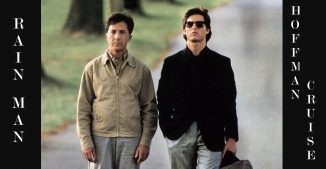
He returns home and discovers that he has an autistic brother named Raymond (Hoffman), and the entire family fortune of $3 million is being left to the mental institution where Raymond lives. Motivated by his father’s money, Charlie checks him out of the facility and starts driving him back to Los Angeles. The brothers’ cross-country trip ends up changing both their lives.
Some trivia about who was originally envisioned to play the key roles: The script was sent to Bill Murray, who was offered the title role—with Dustin Hoffman slated to play the ‘LA slimeball’. Mickey Rourke was also offered a role but he turned it down. WATCH the trailer… (1988)
Also, 55 years ago today, Hello Dolly!, starring Barbra Streisand, hit big screens across America. The romantic-comedy musical based on the Broadway production was directed by the legendary Gene Kelly and co-starred Walter Matthau and Louis Armstrong (whose recording of the title tune had become a number-one single five years earlier).
 The film follows the story of Dolly Levi, a strong-willed matchmaker who travels to Yonkers, New York in order to find a match for the miserly “well-known unmarried half-a-millionaire” Horace Vandergelder. The film won three Academy Awards for Best Art Direction, Best Musical Score, and Best Sound, and was nominated for a further four Academy Awards, including Best Picture. WATCH Louie and Barbara sing the title track… (1969)
The film follows the story of Dolly Levi, a strong-willed matchmaker who travels to Yonkers, New York in order to find a match for the miserly “well-known unmarried half-a-millionaire” Horace Vandergelder. The film won three Academy Awards for Best Art Direction, Best Musical Score, and Best Sound, and was nominated for a further four Academy Awards, including Best Picture. WATCH Louie and Barbara sing the title track… (1969)
SHARE the Milestones, Music, and Memories…




















